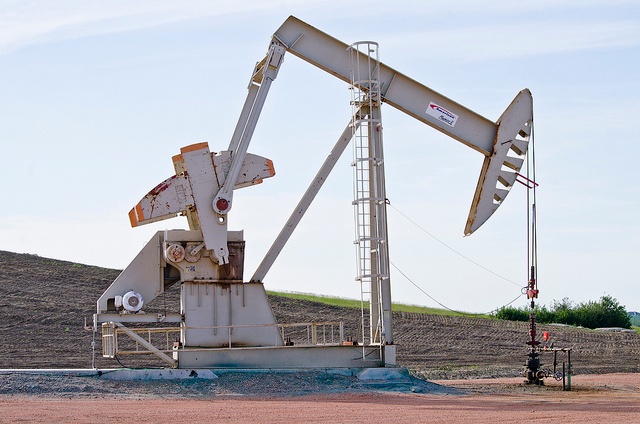North Dakota State University (NDSU) President Dean L. Bresciani organized $350,000 to fund research into solutions for the dust produced by North Dakota’s oil industry.
Concerns are growing around the high levels of dust thrown up by traffic associated with Bakken’s successful oil wells. This sort of dust presents environmental and health risks, and all are keen to find a way to mitigate its negative effects.
NDSU announced it will fund teams to explore the nature of the problem and the best ways to solve it. Members of the university are currently coming forward with proposals for methods of research. By September 1, a panel of experts will decide which projects should be funded, with individuals receiving grants of up to $15,000, groups up to $60,000, to resolve this pressing issue.
Dust: an Urgent Problem
According to High County News, North Dakota’s growing oil industry—bringing wealth and skilled jobs to the state—also runs the risk of causing health problems via dust.
The Bakken Oil deposits lie under a part of North Dakota with a relatively sparse population, so many of the roads used to haul the oil are unpaved. Heavy traffic passing over unpaved roads throws up a great deal of dust, which can be blown into communities, fields, and other undesirable locations.
North Dakota State University hopes to “evaluate agricultural…and ecological impacts from road dust; and develop techniques or technologies to control road dust emissions”–ultimately to help local communities and governments on how to handle this problem.
Research Programs for a Dust Control Solution
NDSU has ample experience using research and economic statistics to help city authorities to plan for the future and to craft new regulatory and legal frameworks. Prior to this recent initiative, NDSU conducted research for the purpose of advising the local people who are affected by the growing energy industry. NDSU students have actively helped the oil industry too, as when they examined clay layers to determine the best locations for drilling.
Proven Dust Control Solutions and Programs
The university is poised to gain information of great utility for tackling the risks associated with dust in its home state. In their quest to “develop techniques or technologies to control road dust emissions,” it’s worth noting that Midwest has a full line of proven products and programs to help prevent dust, repair and control deterioration, and build new road surfaces that will hold up even on weak marginal soils.
Midwest’s proven Fines Preservation Program utilizing Envirokleen keeps the road in as-built condition and is the antidote to the dust, potholes, wash boarding and liabilities resulting from the stress placed on unpaved roads into and away from oil and gas E&P activities. Our Fines Preservation Program “keeps the road on the road,” preventing particles, or fines, from escaping as fugitive dust while increasing CBR, decreasing maintenance frequency and lowering the life cycle cost.
Midwest can also increase CBR by 80 percent in 48 hours and by up to 500% with traffic and surface maturation, even on marginal soils that cannot stand up to the traffic and weight loads typical of gas and oil E&P activity with their SF2 Stabilization Technology. Midwest’s full-depth reclamation and stabilization process, which lasts for the full lifecycle of a road, is a cost-effective alternative to the 12- or 18-inch reclamation traditionally required when worked only to a six-inch depth.
Overall, it seems that the people of North Dakota can be confident that a top research institution will be looking into their problems. When the researchers report back, there will be a number of top dust control solutions at the disposal of businesses, governments and communities to tackle the problem.


